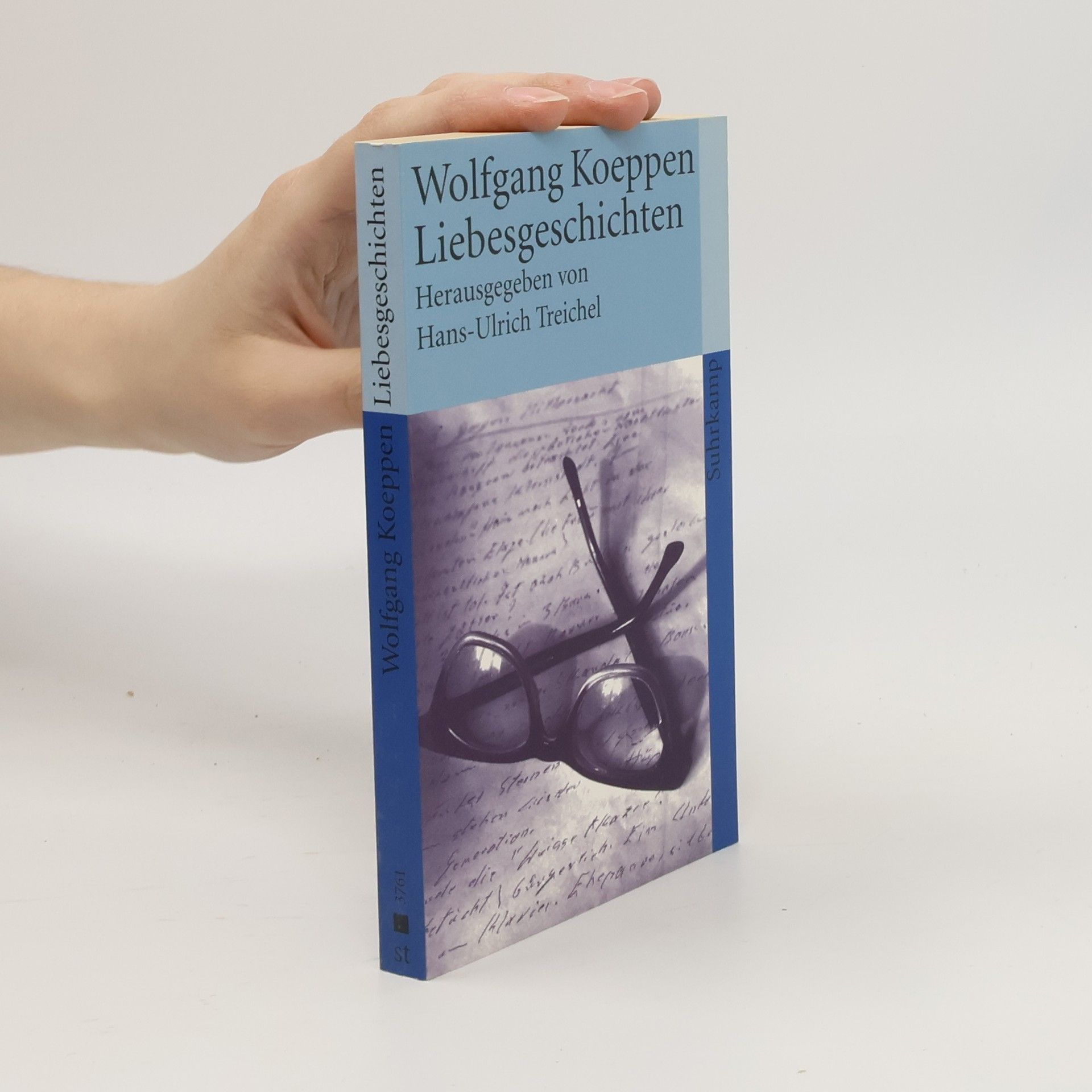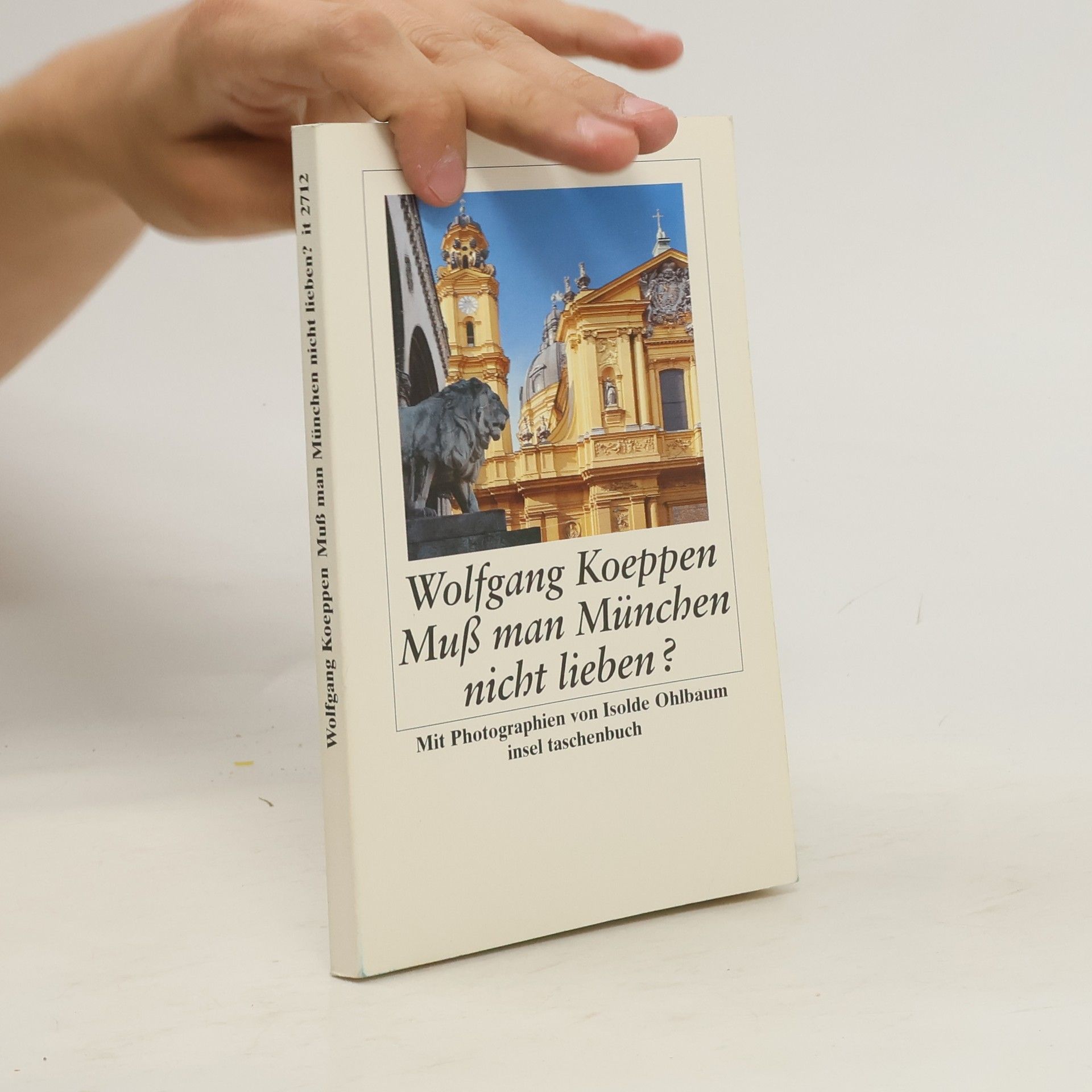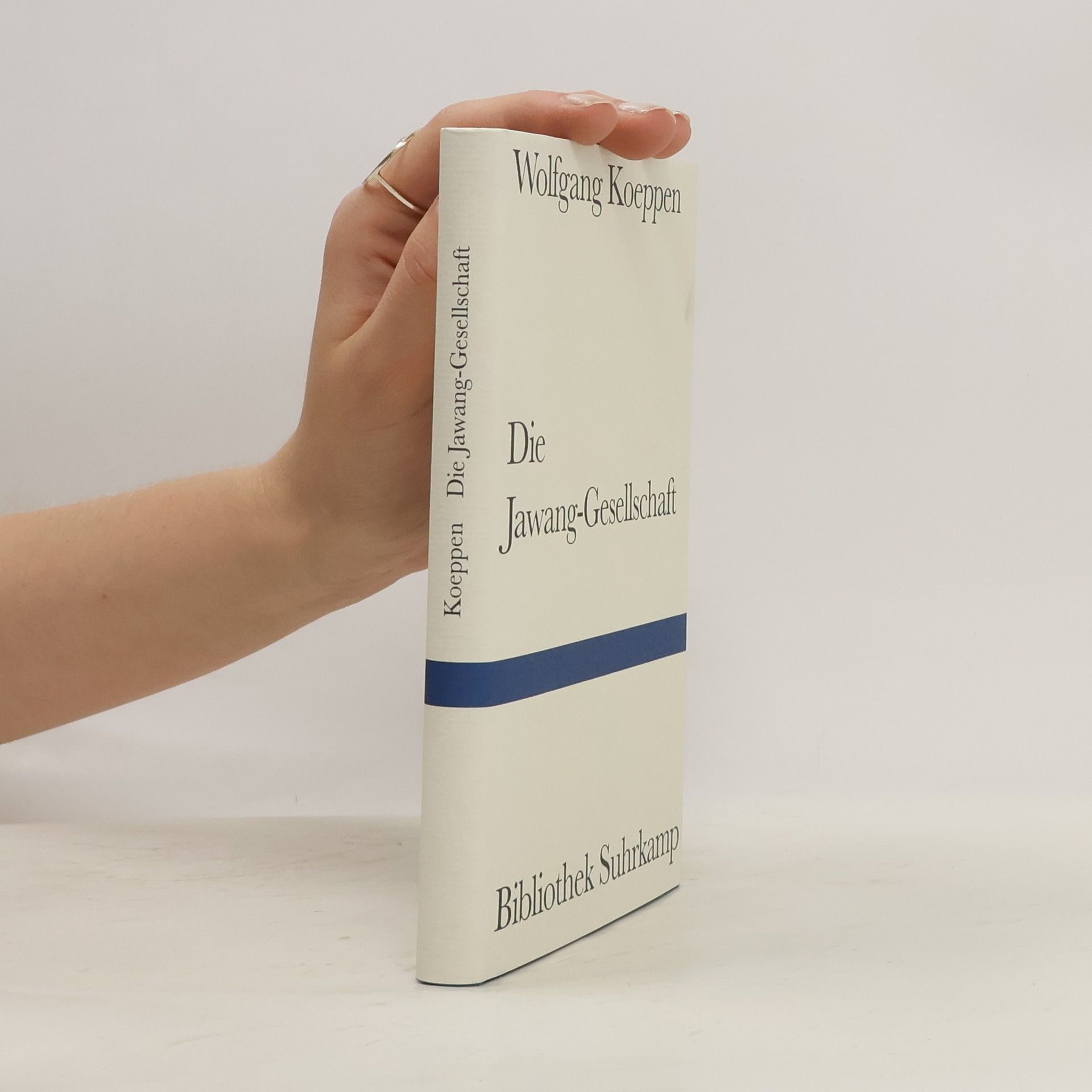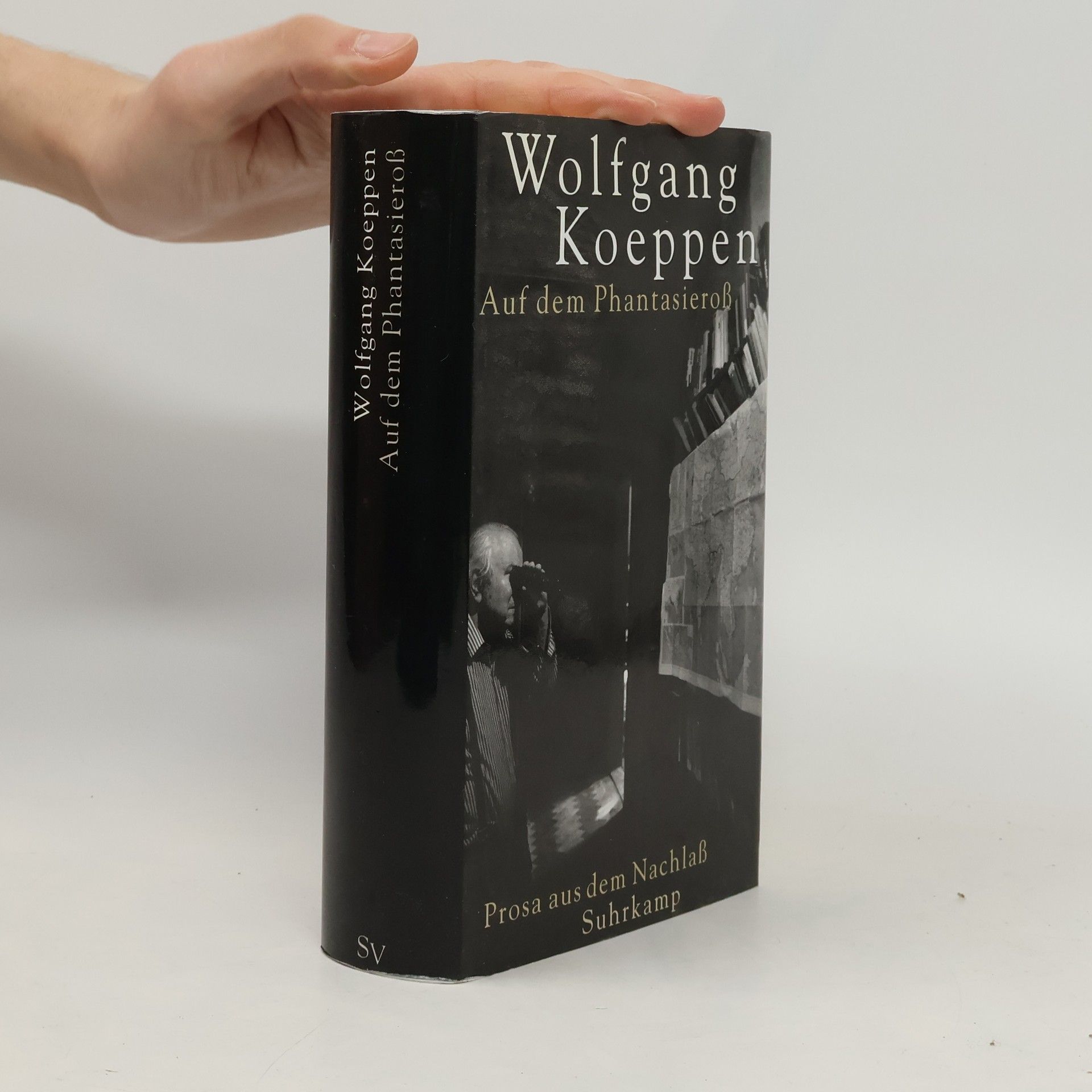Die Romanfragmente von Wolfgang Koeppen spiegeln einen kreativen Schaffensprozess über nahezu sechzig Jahre wider. Besonders bemerkenswert sind die intensiven Schaffensphasen, wie zwischen 1951 und 1954, in denen Koeppen mehrere bedeutende Werke verfasste. Diese Fragmente bieten Einblicke in seine literarische Entwicklung und thematisieren zentrale Fragen der menschlichen Existenz sowie gesellschaftliche Veränderungen. Koeppens Stil und seine Fähigkeit, komplexe Charaktere zu schaffen, machen diese Sammlung zu einem wichtigen Teil der deutschsprachigen Literatur.
Wolfgang Koeppen Book order (chronological)
Wolfgang Koeppen stands as one of the most significant German authors of the post-war era. His works are distinguished by modern literary techniques, such as stream of consciousness, and probe deeply into themes of identity and society in the post-war period. Koeppen's distinctive style captures the complexities of human experience, and his literary importance is recognized for its impact on German literature.

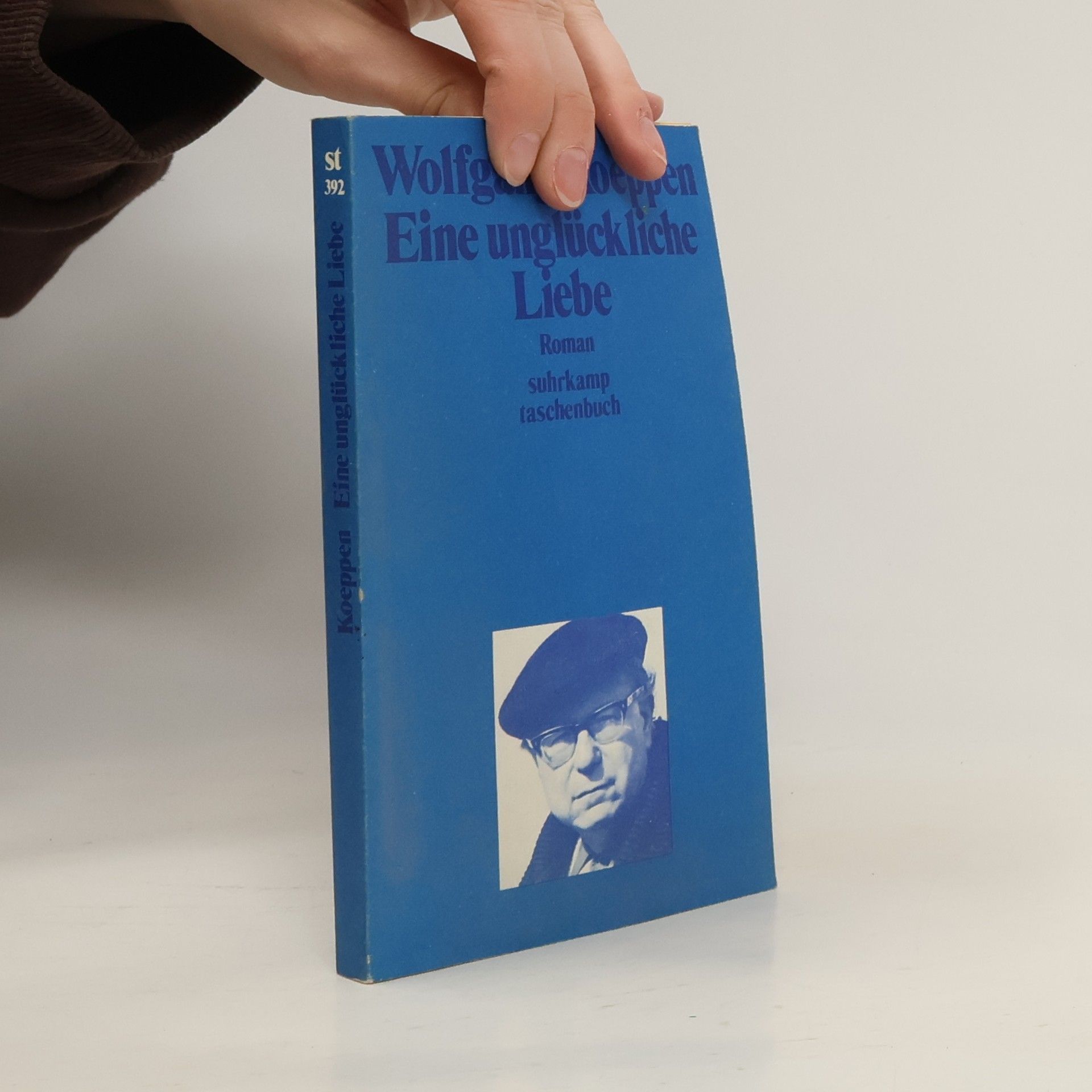




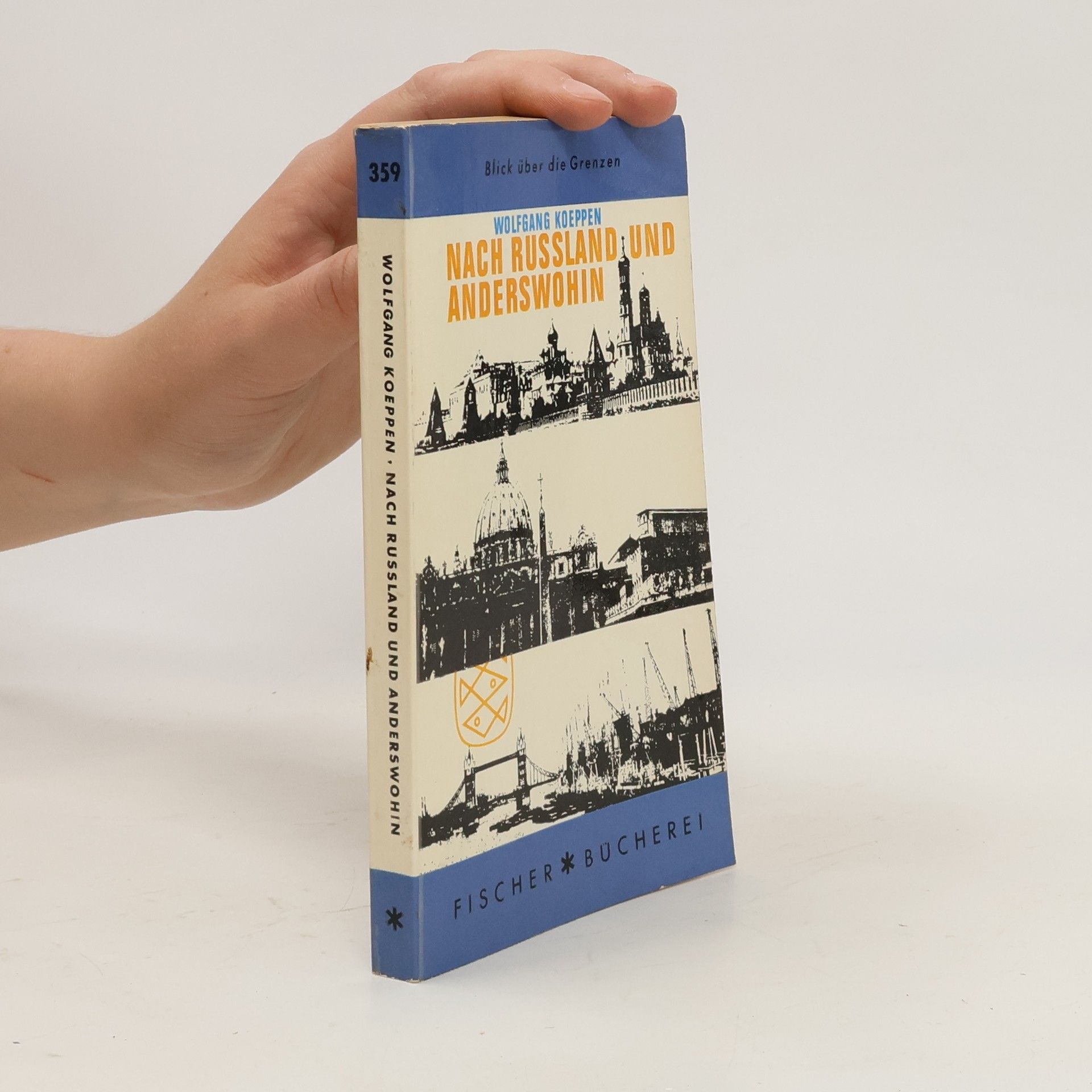
Feuilletons. Werke in 16 Bänden, Band 13
Koeppens Feuilletons | Sämtliche Kritiken, Zeitungsberichte und Feuilletons erstmals in einem Band
- 700 pages
- 25 hours of reading
Die Sammlung von Jörg Döring widmet sich den vielfältigen und oft übersehenen Zeitungsbeiträgen von Wolfgang Koeppen. Sie beleuchtet die literarischen und gesellschaftlichen Themen, die Koeppen in seinen Artikeln behandelt hat, und bietet Einblicke in seine Gedankenwelt. Döring versucht, ein umfassendes Bild von Koeppens journalistischem Schaffen zu zeichnen, das oft im Schatten seines literarischen Werkes steht. Der Band ist somit eine wertvolle Ergänzung für das Verständnis eines der bedeutendsten deutschen Schriftsteller des 20. Jahrhunderts.
Tauben im Gras. Text und Kommentar
- 280 pages
- 10 hours of reading
Die Suhrkamp BasisBibliothek veröffentlicht bedeutende literarische Werke aller Epochen und Gattungen als Arbeitstexte für Schule und Studium, inklusive hochwertiger Texte aus renommierten Verlagen und informativen Kommentaren.
Briefe
- 457 pages
- 16 hours of reading
Liebesgeschichten
- 218 pages
- 8 hours of reading
Eine unglückliche Liebe heißt der erste Roman, den Wolfgang Koeppen 1934 publizierte, und Koeppen hat die Themen Liebe, Begehren und Sehnsucht immer wieder in seiner Prosa aufgegriffen. Meist ist es eine unerfüllte Liebe, eine Suche nach dem »Reich der Sinne«, die Koeppens Helden ertragen bzw. zu ertragen haben.
Muß man München nicht lieben?
- 154 pages
- 6 hours of reading
Wolfgang Koeppen, geboren am 23. Juni 1906 in Greifswald und gestorben am 15. März 1996 in München, verbrachte seine Kindheit in Ortelsburg (Ostpreußen) und kehrte 1919 nach Greifswald zurück. Aufgrund finanzieller Schwierigkeiten wechselte er von der Gymnasial- zur Mittelschule und brach diese ohne Abschluss ab. Er arbeitete in verschiedenen Berufen, darunter in einer Buchhandlung und als Dramaturg in Würzburg. 1927 ließ er sich in Berlin nieder, wo er 1931 als Redakteur beim Berliner Börsen-Courier tätig war. 1934 veröffentlichte er seinen ersten Roman und zog in die Niederlande, wo er an einem unvollendeten Werk arbeitete. 1935 erschien ein weiterer Roman, der jedoch wenig Beachtung fand. Nach seiner Rückkehr nach Deutschland 1938 arbeitete er für die Bavaria-Filmgesellschaft und siedelte 1945 nach München über. 1948 veröffentlichte er anonym ein Buch, dessen Neupublikation unter seinem Namen erst 1992 erfolgte. In den frühen 1950er Jahren erschienen drei Romane, die als prägnante Darstellungen des Klimas der Adenauer-Republik gelten. Koeppen trug auch zur Reiseliteratur in Deutschland bei. Alfred Estermann, geboren 1938 und verstorben 2008, war Professor für Literatur- und Medienwissenschaft und leitete das Schopenhauer-Archiv in Frankfurt am Main.
Die Jawang-Gesellschaft
- 135 pages
- 5 hours of reading
Der Roman erzählt von Carel, einem Waise, der auf einer kleinen holländischen Insel aufwächst und das Gefühl der Nichtzugehörigkeit verbirgt. Nach einer Katastrophe durch Spielschulden eines Freundes verlässt er das Offizierskorps und wird Soldat in Surabaya. Das Fragment besticht durch Carels Außenseiterperspektive.
Auf dem Phantasieross
- 779 pages
- 28 hours of reading
Halte mich in gutem Angedenken auf meinem Phantasieroß - so schrieb Wolfgang Koeppen in seinem letzten Brief an seinen Verleger Siegfried Unseld. Damit kennzeichnete er die sein Schreiben prägende Lebenshaltung: Ihn lockten die Flügel des Ikarus und der Zauberteppich des Märchens. Zugleich wies er damit die Legende vom verstummten Erzähler zurück. Der erste Band erzählender Prosa aus dem Nachlaß mit bisher 170 unveröffentlichten Texten widerlegt diese Legende eindrucksvoll und zeigt die durch die Jahrzehnte ungebrochene Fabulierfähigkeit dieses Autors. Die Sichtung des Nachlasses des 1996 Verstorbenen hat ergeben, daß Koeppen, auch wenn er wenig publizierte, sehr vieles, sehr Gelungenes geschrieben hat. Seine Arbeitsweise erklärt, warum er sich selten zur Publikation entschloß: Seine Erzählungen schrieb er wieder und wieder um, sie waren für ihn nie fertig, er besaß ein ständiges Verfeinerungsbedürfnis. In sieben Teile hat der Herausgeber die Prosa Wolfgang Koeppens unterteilt: Sie beginnt mit frühen Versuchen aus dem Jahre 1923 und endet mit der letzten veröffentlichten Erzählung Koeppens: Im Hochsitz.

